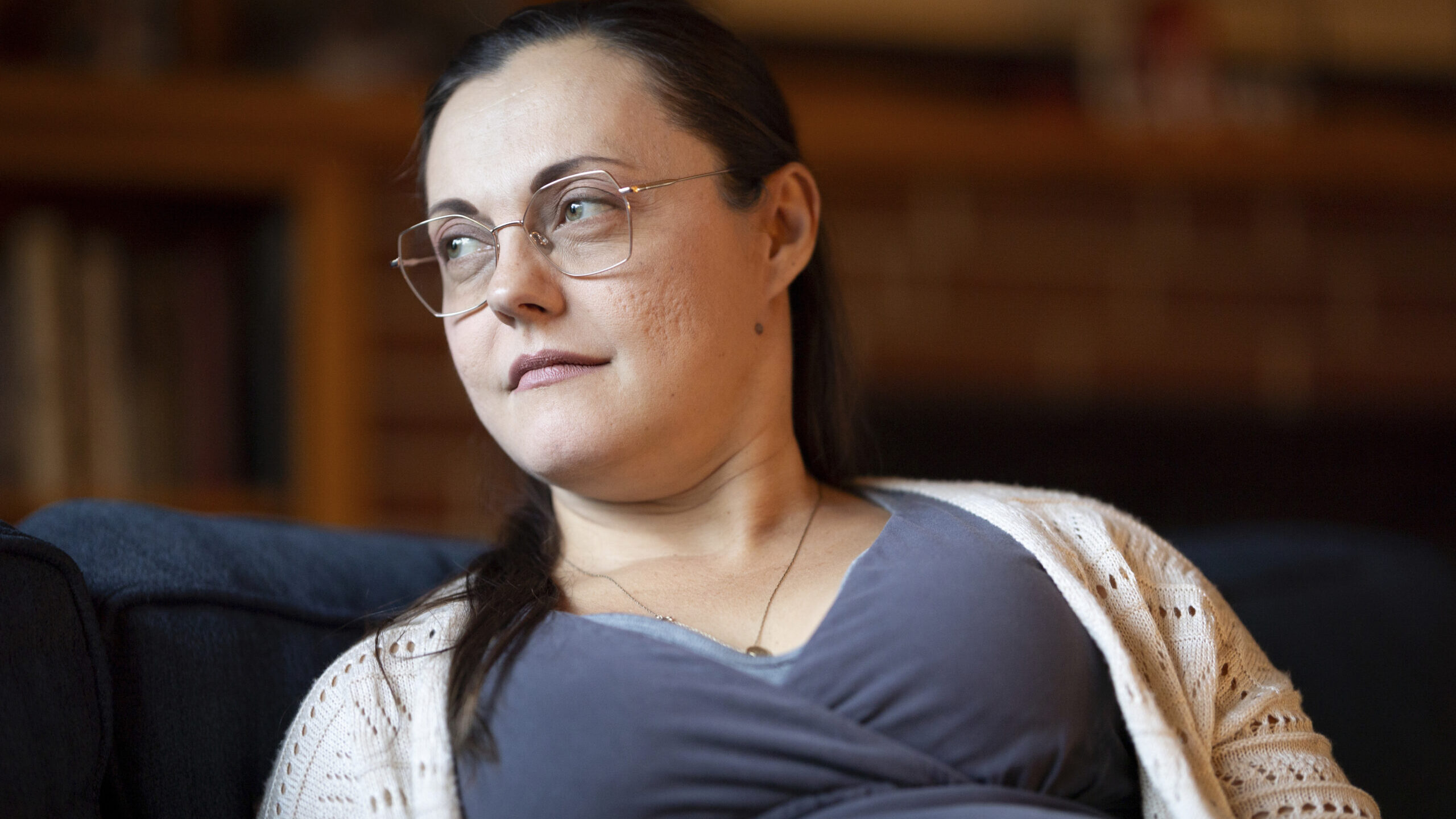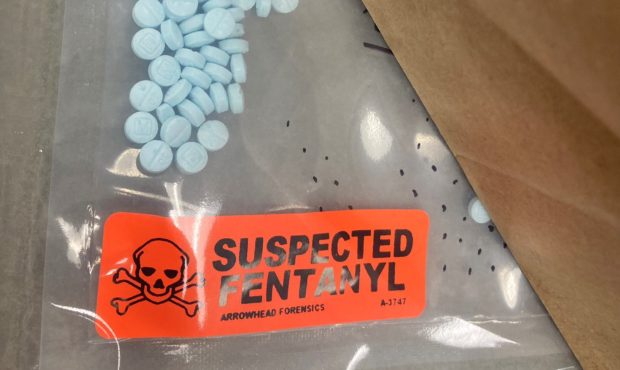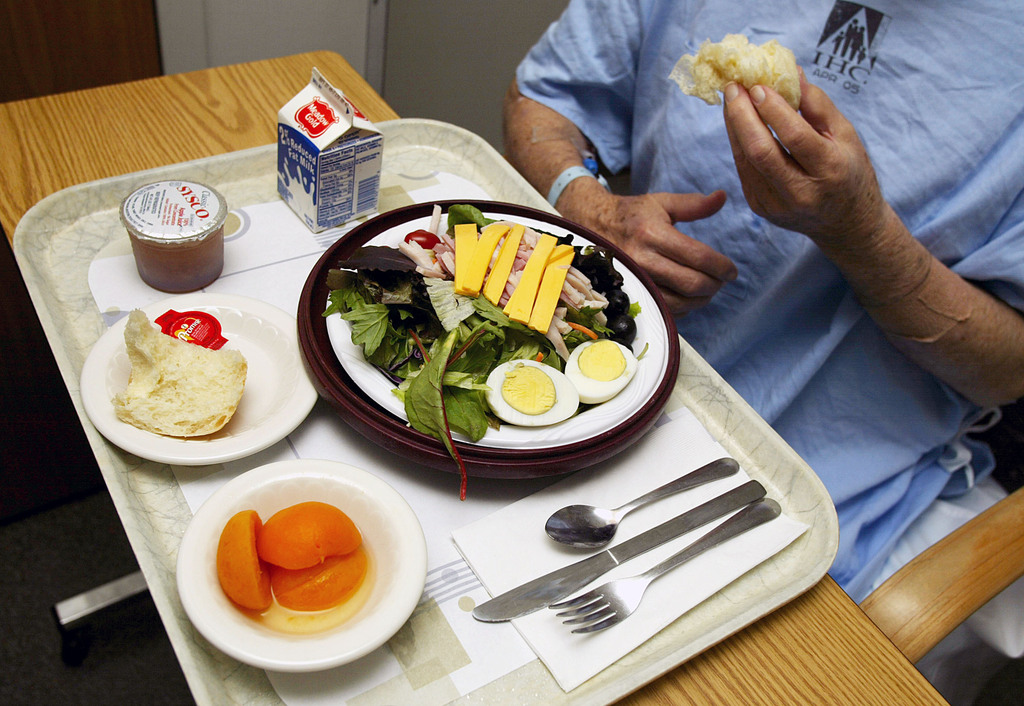Rural hospitals are closing maternity wards. People are seeking options to give birth closer to home
Sep 17, 2023, 10:30 AM

Alisha Alderson who is due to give birth in September, sits in the living room of her house in Baker City, Ore., on Thursday, Aug. 31, 2023. Because of the closing of Baker City's only obstetrical unit, the Anderson family is traveling to the Boise, Idaho area, a little over 100 miles away, to give birth. Alisha will be spending time with family in Kuna, Idaho for 3 weeks until she gives birth or is induced the third week of September. (AP Photo/Kyle Green)
Credit: ASSOCIATED PRESS
(AP Photo/Kyle Green)
Alisha Alderson placed everything she needed for the last month of her pregnancy in various suitcases as she prepared to leave the comfort of her home in rural eastern Oregon. The only maternity ward within 40 miles abruptly closed in August, so she would be staying at her brother’s house in Idaho to be closer to a hospital.
“I was sitting in a hair salon a few days ago and some people started joking about me giving birth on the side of the road,” the 45-year-old said. “And in that moment, I just pictured all the things that could go wrong with my baby and broke down in tears in front of strangers.”
Fewer than half of rural hospitals in the U.S. have maternity units, which forces pregnant women to travel longer distances for care or face giving birth in an emergency room. It’s also prompted government officials and families to scramble for answers. One solution gaining ground is freestanding midwife-led birth centers, but those also often rely on hospitals when serious complications arise.
The closures have worsened so-called “maternity care deserts” — counties, mostly rural, with no hospitals or birth centers and no OB providers. More than two million women of childbearing age live in these areas. And fewer hospital maternity units makes having babies less safe, doctors and researchers say.
“Moms have complications everywhere. Babies have complications everywhere,” said Dr. Eric Scott Palmer, a neonatologist who practiced at Henry County Medical Center in rural Tennessee before it ended obstetric services this month. “There will be people hurt. It’s not a question of if — simply when.”
The American Hospital Association says at least 89 obstetric units closed in rural hospitals between 2015 and 2019, and more have shuttered since. The main reasons are decreasing numbers of births; staffing issues; low reimbursement from Medicaid; and financial distress, according to Peiyin Hung, deputy director of the University of South Carolina’s Rural and Minority Health Research Center.
Officials at Saint Alphonsus, the hospital in Baker City where Alderson wanted to give birth, cited a shortage of OB nurses and declining deliveries. While they said financial concerns didn’t factor into the decision, they also underlined the unit had operated in the red over the last 10 years.
A lack of money was the major reason why Henry County Medical Center in Paris, Tennessee, closed its OB unit. CEO John Tucker told The Associated Press that it was a necessary step to save the hospital overall. He also said the number of deliveries had dropped in recent years.
Six days before the unit closed, just one woman was there to deliver. All of the other rooms contained empty beds and bassinets. Art had been removed from the walls.
Dr. Pamela Evans, who helped with deliveries for years and will stay on as a gynecologist, said she fears things like preterm deliveries, infant mortality and low-birthweight babies are bound to get worse. Prenatal care suffers when people must travel long distances or take lots of time off work for appointments, she said. Not all insurance covers out-of-state deliveries, and it’s an hour or more to some alternative in-state hospitals that families are looking at.
A solution to the rural care crisis might be about two hours away, where a handful of women sat in a circle for a prenatal group meeting at The Farm Midwifery Center, a storied place in Summertown, Tennessee, that’s more than a half-century old. Midwife Corina Fitch led discussions and gave them individual checkups.
“This is the perfect place for me,” said pregnant mom Betsy Baarspul of Nashville, whose first child was born in an emergency C-section in a hospital. “It feels like you’re held in a way.”
Some states and communities are taking steps to create more free-standing birth centers. Connecticut Gov. Ned Lamont recently signed legislation that will license such centers to operate as an alternative for women with low-risk pregnancies.
Alecia McGregor, who studies health policy and politics at the Harvard T.H. Chan School of Public Health, said midwife-led birth centers “can be a very important solution to lowering costs within the U.S. health care system and improving outcomes.”
A report on deliveries at The Farm in its first 40 years showed 5% of clients were transported to the hospital.
Doctors told the AP that rural hospitals will need to be part of the equation, and they believe governments must do more.
Oregon politicians mobilized this summer and considered requesting the help of OB nurses from the U.S. Public Health Service Commissioned Corps, which largely responds to natural disasters and disease outbreaks. While the idea didn’t pan out, the federal service sent experts to Baker City, who recommended several things, including looking into establishing a free-standing birth center.
County commissioner Shane Alderson — the husband of Alisha — said rural communities shouldn’t be stripped of health care options because of their size or the number of low-income people with public insurance.
“That’s not equitable,” he said. “People can’t survive like that.”
___
Rush reported from Baker City, Oregon, and Kuna, Idaho. Ungar reported from Paris, Tennessee, and Summertown, Tennessee.
___
The Associated Press Health and Science Department receives support from the Howard Hughes Medical Institute’s Science and Educational Media Group and the Robert Wood Johnson Foundation. The AP is solely responsible for all content.













